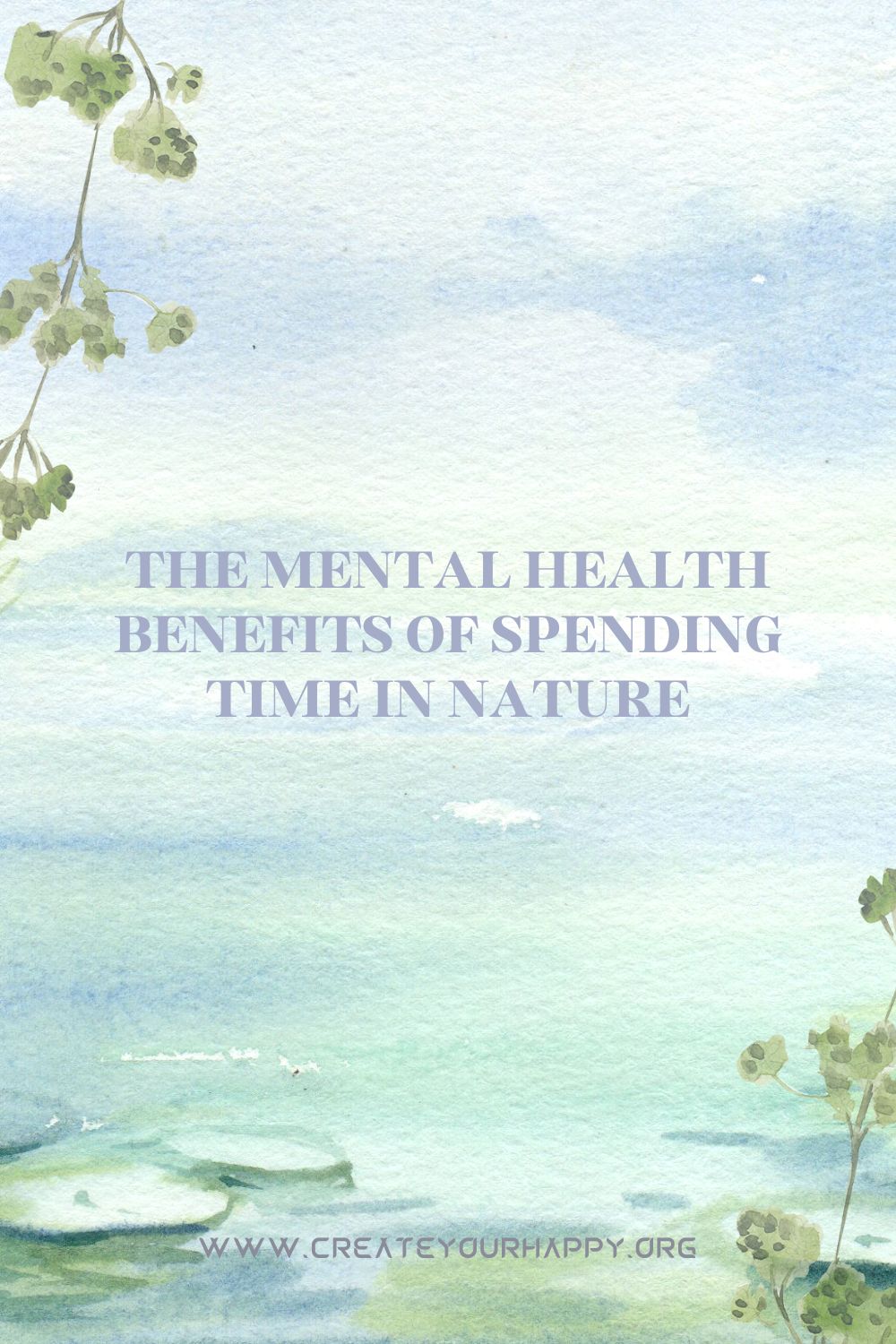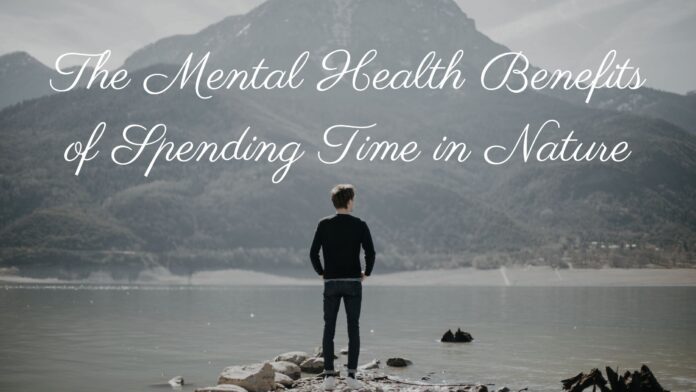Last Updated on August 7, 2023 by Shane Corbitt
The Healing Power of Nature
Discovering the Therapeutic Potential
The world around us is filled with extraordinary beauty and wonder, waiting to be discovered and embraced. In recent years, there has been a remarkable surge of interest in harnessing the healing power of nature for our mental well-being.
This growing fascination with nature-based therapies stems from an increasing recognition that immersing ourselves in natural environments can have profound positive effects on our mental health. Nature has captivated the attention of researchers, therapists, and individuals seeking solace from the stresses of modern life.
The allure lies not only in its breathtaking landscapes but also in its ability to provide comfort, peace, and restoration to weary souls. As we delve deeper into this exploration of nature’s therapeutic potential, we realize that it holds tremendous promise for improving our overall well-being.
A Journey into Mental Well-being
Our mental health plays a pivotal role in shaping our lives. It encompasses more than just the absence of psychological disorders; it extends to our emotional resilience, cognitive abilities, and overall sense of fulfillment.
Mental well-being is essential because it directly influences how we perceive ourselves and interact with the world around us. In today’s fast-paced and interconnected world, maintaining good mental health is often challenging.
Stressors such as work pressure, social demands, and technological overload can easily overwhelm us. Consequently, finding effective strategies to enhance our mental well-being has become a pressing concern.
Recognizing the intricate link between nature and mental health offers hope for cultivating a path toward improved wellness. By embracing the therapeutic potential that nature provides, we can embark on a journey that revitalizes our minds while restoring harmony within ourselves.
Whether you seek solace amid towering trees or find tranquility near rippling streams or majestic mountainscapes: nature welcomes your presence wholeheartedly. So let us now venture forth together into this enchanting realm, where the wonders of nature intersect with the boundless potential of our own mental well-being.

The Connection between Nature and Mental Health
Explanation of Biophilia – Humans’ Innate Affinity for Nature
Humans have an inherent and natural connection to the world around them, a phenomenon known as biophilia. It is the idea that we possess an innate affinity for nature and living things.
This deep-rooted bond has been ingrained in our evolution, as we have spent countless generations living in close proximity to nature. Our ancestors relied on the natural world for survival – finding food, seeking shelter, and navigating their surroundings.
As a result, we have developed an intrinsic need to be in contact with the natural environment. This affinity for nature can be seen in our fascination with green spaces, forests, rivers, and wildlife.
Just think about how spending time at a beach or taking a walk through a peaceful forest can instantly uplift our mood and feelings of well-being. This connection is not solely nostalgic; it is hardwired into our biology.
The sound of waves crashing against the shore or birds chirping in a park triggers positive reactions within us. Understanding biophilia helps us appreciate why immersing ourselves in nature has such profound effects on our mental health.
Scientific Evidence Supporting the Positive Effects of Nature on Mental Health
Scientists have long recognized that spending time in nature has numerous positive effects on mental health. Numerous studies have shown that exposure to natural environments helps reduce stress levels, improve mood, enhance cognitive function, and even boost overall mental resilience. For instance, research has demonstrated that being surrounded by greenery can significantly reduce stress hormone levels such as cortisol while increasing heart rate variability—a marker of relaxation—leading to a greater sense of calmness and tranquility.
Similarly, engaging with natural environments has been found to enhance emotions such as happiness and joy while reducing negative ones like anger or sadness. Moreover, studies exploring Attention Restoration Theory (ART) have revealed that being in nature can restore our cognitive function.
Spending time in natural settings allows our minds to enter a state of restful awareness, effectively recovering from mental fatigue and improving our ability to concentrate, problem-solve, and think creatively. With such robust scientific evidence supporting the positive effects of nature on our mental well-being, it is no wonder that more and more people are recognizing the therapeutic potential of spending time in nature.


Stress Reduction and Relaxation in Nature
How exposure to natural environments reduces stress levels
When life becomes overwhelming, nature has the power to bring us back to a state of calm and tranquility. It’s no coincidence that spending time in nature is often described as therapeutic. The gentle rustle of leaves, the soothing sound of flowing water, and the vibrant colors of flowers all work together to create a serene environment that allows our bodies and minds to relax.
Research has shown that exposure to natural environments can significantly reduce stress levels. One key factor is the decrease in cortisol levels – the hormone responsible for regulating stress responses.
When we step into nature, away from the hustle and bustle of daily life, our cortisol levels naturally decline. This hormonal shift helps us feel more relaxed and at ease.
Decreased cortisol levels and heart rate variability
Apart from reducing cortisol levels, spending time in nature also positively influences heart rate variability (HRV). HRV refers to the variation in time intervals between consecutive heartbeats. Higher HRV indicates better cardiovascular health and a lower risk of developing stress-related disorders.
Studies have found that being in natural environments increases heart rate variability due to factors such as improved air quality, exposure to phytoncides (chemicals emitted by trees), and a sense of connectedness with nature. This increase in HRV suggests that being immersed in green spaces can help regulate our autonomic nervous system, allowing us to manage stress more effectively.
Improved mood and emotional well-being
Nature has an extraordinary way of lifting our spirits when we are feeling down. Whether it’s taking a stroll through a park or sitting by the ocean, being surrounded by natural beauty can improve our mood and enhance emotional well-being.
Spending time outdoors has been linked with increased production of serotonin – often referred to as the “happy hormone.” Serotonin plays a crucial role in regulating mood, promoting feelings of happiness and contentment. Additionally, exposure to nature stimulates the release of endorphins, which are natural painkillers that induce feelings of euphoria and reduce anxiety.
Moreover, being in natural environments encourages mindfulness and a sense of presence. The sights, sounds, and smells of nature capture our attention and divert it from worry or rumination.
This shift in focus allows us to be more present at the moment, fostering a sense of calmness and improving our overall emotional well-being. Spending time in nature has powerful stress reduction benefits.
It lowers cortisol levels, improves heart rate variability, and enhances mood and emotional well-being. So next time you’re feeling overwhelmed or stressed out, consider immersing yourself in the wonders of nature – it may be just what you need to find peace within yourself.


Enhancing Cognitive Function through Nature Experiences
Exploration of Attention Restoration Theory (ART)
In our fast-paced, technology-driven world, it’s no surprise that many of us suffer from attention fatigue. Constant notifications, multitasking, and information overload can leave our brains feeling overwhelmed and exhausted.
Attention Restoration Theory (ART) suggests that exposure to natural environments can provide the perfect remedy for this modern affliction. According to ART, natural surroundings have a unique ability to effortlessly capture our attention in a gentle and non-demanding way.
Unlike the constant stimulation encountered in urban environments or through digital screens, nature provides a restorative environment that allows our cognitive systems to relax and recover. In other words, spending time in nature gives our attention system a much-needed break from the intense demands of everyday life.
Attention Fatigue and Its Impact on Cognitive Function
Attention fatigue occurs when we excessively exert our cognitive resources without adequate recovery periods. This state negatively affects various aspects of cognitive function, such as concentration, memory retention, problem-solving abilities, and creative thinking.
When we’re constantly bombarded with information and distractions, it becomes increasingly challenging for us to maintain sustained focus on the tasks at hand. Interestingly enough, studies show that exposure to natural environments can reverse the effects of attention fatigue by reinvigorating our cognitive abilities.
When we immerse ourselves in nature’s tranquility – whether it’s a peaceful forest or a serene shoreline – it allows our attentional mechanisms to replenish themselves naturally. By engaging with the sights, sounds, and scents of nature without any pressure or specific goals in mind, we give ourselves an opportunity to truly recharge mentally.
Through this restoration process facilitated by nature experiences, not only does our overall well-being benefit, but so does our ability to concentrate effectively on subsequent tasks. Whether it’s tackling work projects or engaging in creative endeavors, having a restored attentional capacity enhances our cognitive performance and allows us to operate at our full intellectual potential.
Spending time in nature offers more than just a respite from the hustle and bustle of daily life. It can significantly enhance our cognitive abilities by providing the ideal environment for attention restoration.
By immersing ourselves in natural environments and allowing ourselves to mindfully experience the wonders of nature, we can reap the benefits of improved focus, mental clarity, and heightened cognitive function. So, next time you feel mentally drained or overwhelmed by attention fatigue, consider taking a leisurely stroll through a park or finding solace in a peaceful garden – your brain will thank you for it!


Boosting Mental Resilience in Natural Settings
Examination of the Role Nature Plays in Building Resilience against Mental Health Issues
When it comes to mental health, nature has proven itself to be a powerful ally. Spending time in green spaces can have a significant impact on building resilience against mental health issues. Research has shown that individuals who regularly engage with nature are less likely to experience symptoms of depression and anxiety.
The soothing sights and sounds of natural environments provide a much-needed respite from the demands and pressures of daily life. Green spaces, whether it’s a lush forest or a beautifully landscaped park, offer a sense of peace and tranquility that can help alleviate stress and improve overall well-being.
The presence of greenery has been linked to lower levels of cortisol, the hormone responsible for stress responses. It’s as if nature whispers to our souls, reassuring us that everything will be okay.
Exposure to Green Spaces as a Protective Factor against Depression and Anxiety Disorders
The impact of spending time in green spaces goes beyond just temporary relief from stress; it also acts as a protective shield against more severe mental health conditions such as depression and anxiety disorders. Studies have shown that individuals living in areas with more access to nature have lower rates of these conditions compared to those in urban environments lacking green spaces. The reasons behind this protective effect are multifaceted.
Firstly, exposure to nature helps break the cycle of rumination often associated with depression or anxiety. When surrounded by natural beauty, our minds become engrossed in the present moment, diverting attention away from negative thoughts or worries about the future.
Additionally, engaging with nature promotes physical activity, which is known for its positive impact on mental health. Whether it’s going for a hike or simply strolling through a park, being outdoors encourages movement and exercise—an effective way to boost mood and reduce symptoms of depression or anxiety.
Increased Self-esteem, Self-efficacy, and Sense of Purpose through Nature Experiences
Nature does not only provide respite from mental health challenges but can also foster personal growth and development. Immersion in natural settings has been associated with increased self-esteem, self-efficacy, and a sense of purpose. When surrounded by the beauty of nature, individuals often feel a deep connection and appreciation for the world around them.
This connection can instill a sense of awe and wonder, reminding us that we are part of something much greater than ourselves. This realization can contribute to an enhanced sense of purpose in life.
Moreover, engaging with nature offers opportunities for accomplishment. Whether it’s conquering a challenging hiking trail or tending to a garden, these accomplishments can boost self-esteem and confidence.
Additionally, being in nature allows individuals to develop problem-solving skills as they navigate unfamiliar terrains or interact with various elements. Nature serves as an invaluable tool for building mental resilience.
It acts as both a shield against mental health issues like depression and anxiety disorders while also fostering personal growth through increased self-esteem, self-efficacy, and a newfound sense of purpose. So next time you’re feeling overwhelmed or stuck in a rut—step outside into the embrace of nature; it may just be the remedy you need to cultivate strength from within.


The Role of Nature-Based Therapies for Mental Health Treatment
An Overview of Ecotherapy or Green Therapy as a Recognized Form of Treatment
Nature-based therapies, also known as ecotherapy or green therapy, have gained recognition as effective forms of treatment for mental health issues. These therapeutic approaches harness the healing power of nature to improve psychological well-being.
Ecotherapy acknowledges the importance of the environment in shaping the human experience and leverages it to promote mental health and overall wellness. One key aspect of ecotherapy involves reconnecting individuals with nature in order to reap its therapeutic benefits.
By immersing oneself in natural surroundings, individuals can experience a sense of peace and tranquility that helps alleviate symptoms related to stress, anxiety, depression, and other mental health disorders. Ecotherapists often combine traditional therapy techniques with outdoor activities to facilitate self-reflection, personal growth, and emotional healing.
Different Types of Nature-Based Therapies
Nature-based therapies encompass various practices that utilize different aspects of nature to promote mental well-being. Here are three prominent examples: 1) Forest Bathing or Shinrin-yoku: Originating from Japan, forest bathing is a practice centered around immersing oneself in the atmosphere of a forest.
It involves mindful walking and exploration within wooded areas while engaging all senses. Forest bathing has been scientifically proven to have numerous benefits on mental health, including reducing stress levels and anxiety while improving mood and concentration.
The practice encourages participants to disconnect from technology and embrace the serenity provided by nature. 2) Horticultural Therapy: Horticultural therapy capitalizes on gardening activities as a therapeutic tool for promoting emotional well-being.
Engaging in gardening not only cultivates plants but also nurtures one’s own mental state through active involvement with nature. This therapy offers individuals an opportunity for self-expression, a sense of accomplishment, and an outlet for stress relief.
Horticultural therapy has shown significant positive effects in reducing symptoms of depression, improving self-esteem, and fostering social connections. 3) Animal-Assisted Therapy: Animal-assisted therapy involves interactions with animals to provide emotional support and companionship.
Animals, such as dogs or horses, are trained to assist individuals in managing their mental health conditions. Interacting with animals has been found to reduce anxiety, lower blood pressure, and increase feelings of happiness.
The unconditional love and non-judgmental nature of animals create a safe space for individuals to open up emotionally and develop valuable coping skills. Incorporating nature-based therapies like ecotherapy into mental health treatment plans can offer unique opportunities for individuals to heal and find solace in the bountiful wonders of the natural world.


The Role of Exercise in Nature for Mental Well-being
A Discussion on how physical activity in Nature can enhance mental well-being
Engaging in physical activity is not only beneficial for our physical health but also plays a significant role in promoting mental well-being. When we combine exercise with the therapeutic power of nature, the effects on our mental health are amplified.
The great outdoors offers us a unique opportunity to integrate movement and natural surroundings, creating a harmonious synergy that benefits both body and mind. When we exercise in nature, our bodies respond differently compared to indoor workouts.
The fresh air, sunlight, and ever-changing scenery provide stimulation for our senses while offering a sense of freedom from the confines of walls and routines. Whether it’s jogging along a forest trail or cycling through picturesque landscapes, these activities engage both our cardiovascular system and our brain, releasing endorphins that boost mood and reduce stress levels.
Exploring the various ways to incorporate exercise into nature experiences
The possibilities to incorporate exercise into your nature experiences are endless. Hiking is an excellent option as it allows you to explore different terrains while getting your heart rate up. Not only does hiking provide an excellent cardiovascular workout, but it also exposes you to breathtaking landscapes that can bring a sense of awe and tranquility.
For those who prefer more intense workouts, outdoor activities such as trail running or mountain biking offer an adrenaline rush while immersing you in natural surroundings. The ever-changing terrain challenges your body physically while refreshing your mind mentally.
If you’re seeking something more gentle yet equally beneficial, yoga or tai chi sessions in serene outdoor settings can facilitate deep relaxation while connecting with the natural elements around you. Remember that the goal here is not just rigorous physical exertion but rather finding joy and harmony through movement within nature’s embrace.
Conclusion
Incorporating exercise into our nature experiences holds immense potential for enhancing our mental well-being. By engaging in physical activities amidst the beauty of the natural world, we give ourselves the gift of improved mood, reduced stress levels, and a strengthened mind-body connection. So, whether it’s a leisurely stroll through a park, an invigorating hike up a mountainside, or even just planting flowers in your garden, embrace the opportunity to move your body in nature.
Let the sights, sounds, and smells of the outdoors inspire and uplift you. Your mental health will thank you for it.
Remember that taking care of your mental health is an ongoing journey. Find ways to incorporate nature and exercise into your daily routine.
By nurturing this connection between body and environment, you can cultivate a greater sense of well-being that will positively impact all aspects of your life. Embrace the healing power of nature and let it guide you on a path toward greater happiness and fulfillment.
Immerse yourself in the ebb and flow of nature and unlock tranquility, but don’t let the bustling rhythm of life steal your well-being. Wander with us further into How to Maintain a Healthy Lifestyle in a Busy World and learn to keep your vitality intact amidst the chaos. Moreover, boost your mental and physical health with the powerful punch of nature’s finest gifts as we reveal What are the Best Superfoods to bolster your diet and mental wellness.










